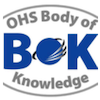Chapter 9: Socio-political context - Industrial, technological and business imperatives
Abstract
Organisations make decisions within a socio-political context that encompasses business, technology and industrial relations imperatives. Such decisions have impacts, often latent, on Occupational Health and Safety (OHS) risks within the workplace. The OHS professional needs to understand the organisation within which they consult, either internally or externally, so that they can influence the decision to minimise adverse OHS outcomes from decisions related to these imperatives. A socio-technical systems framework is used to discuss these issues.
Keywords: industrial law, socio-technical systems, technology, unions
First year of publication: 2012
Current Version: 2012
Chapter 9: Socio-Political Context - Business, Technological and Industrial Imperatives
Table of contents
1 Introduction
2 Socio-technical systems
3 Business imperatives
4 Technological imperatives
4.1 The Industrial Revolution and OHS
4.2 Technology and organisational systems
4.3 Emerging technology issues
5 Industrial relations imperatives
5.1 History of industrial relations in Australia
5.2 Industrial law
5.3 Industrial relations and OHS
6 Implications for OHS practice
7 Summary
References
Leo J. Ruschena MSc, MIER, BEng, BEcon, GradDip OrgBeh, CFSIA
Senior Lecturer OHS, School of Applied Science, RMIT University
Leo’s postgraduate and undergraduate classes at RMIT University cover OHS management systems, risk assessment and controls, ergonomics and employee relations. Leo has held executive HR/OHS roles in WorkSafe Victoria and various Victorian and ACT electricity supply authorities. He has extensive OHS and HR experience, and a particular interest in the strategic involvement of health and safety leadership to improve organisational effectiveness.
Learning Outcomes: Socio-political context: Industrial, technological and business imperatives
The OHS Body of Knowledge takes a conceptual approach which enables it to be applied in different contexts and frameworks.
To optimise its value for education and professional development learning outcomes have been developed for each technical chapter in the Body of Knowledge.
The learning outcomes as described give an indication of what should be the capabilities of an OHS professional; it is up to those developing OHS education programs, OHS professionals planning their CPD or recruiters or employers selecting or developing people for the OHS function to consider the required breadth vs. depth .
Please read the section on using the learning outcomes before delving into the leaning outcomes of the individual chapters.
The numbers against each learning outcome refer to the chapter number of the BOK download page. No learning outcomes have been developed for the chapters considered introductory or underpinning knowledge (that is chapters 1, 2, 3, 4, 5, 6, 7, 1, .13, 14, 15.)

